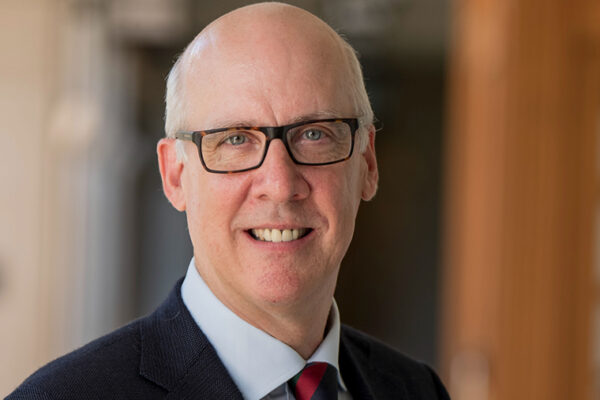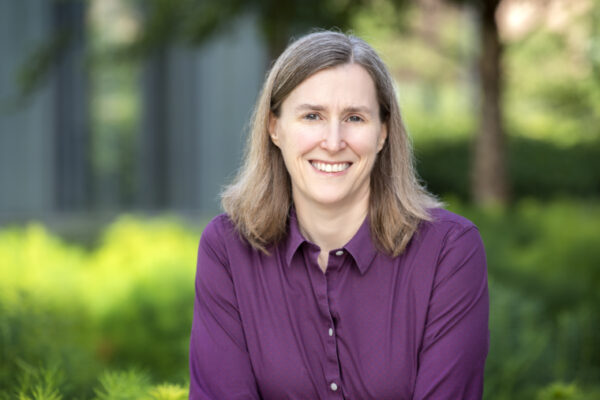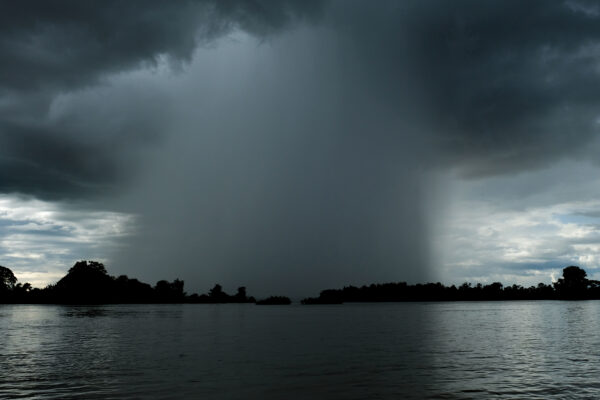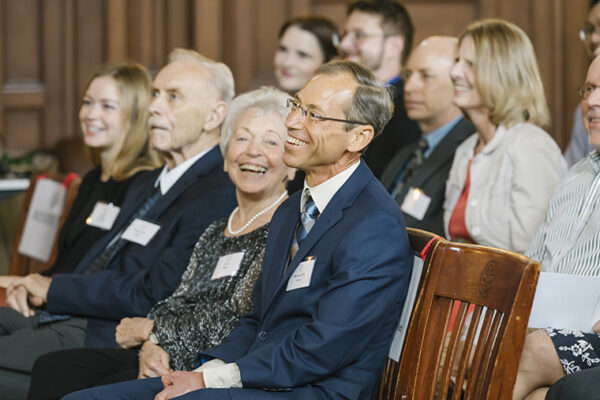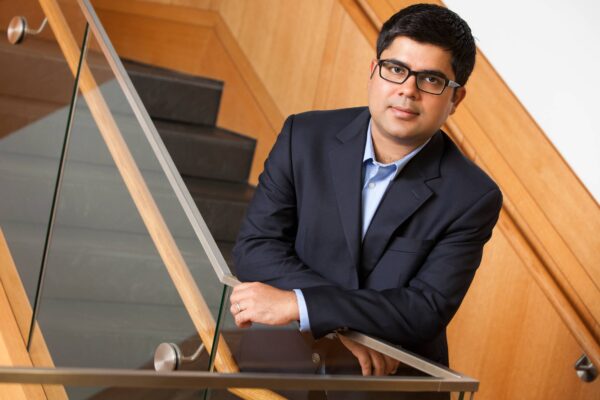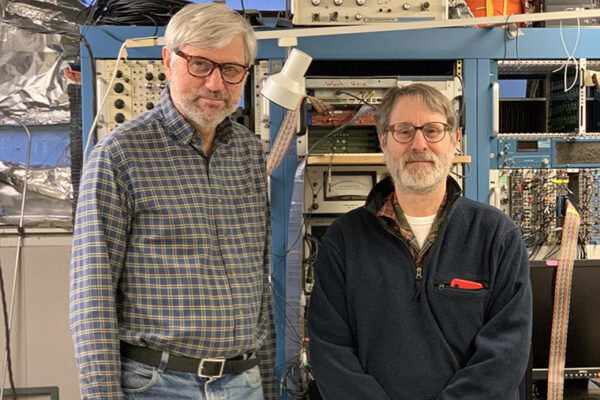NSF invests in semiconductor research at McKelvey School of Engineering
Sang-Hoon Bae and Mark Lawrence, at the McKelvey School of Engineering, received a total of $3.8 million for collaborative research projects on the future of semiconductor design and manufacturing.
Scherrer honored with Lifetime Dedication Award
Joseph H. Scherrer, at the McKelvey School of Engineering, was recognized by the Missouri Athletic Club for his overall commitment to military service as well as his achievements. Scherrer spent 24 years in the U.S. Air Force as a leader and information technology and cybersecurity innovator.
How underground fungi shape forests
Biologist Jonathan Myers in Arts & Sciences leads work at Tyson Research Center that fueled an investigation into the role of underground fungi as drivers of global forest diversity.
Research network to focus on AI, integrated circuits
Shantanu Chakrabartty, at the McKelvey School of Engineering, will lead the Neuromorphic Integrated Circuits Education network, a team that is looking at the brain and its neural mechanisms as a model for hardware and algorithms that make the most of computational performance with the least amount of power.
Using machine learning to boost amorphous metals
Katharine Flores at the McKelvey School of Engineering will collaborate on a National Science Foundation-funded project to build simulation-informed models that predict material properties in 3D-printed metallic glasses
Study links changes in global water cycle to higher temperatures
Research led by Bronwen Konecky in Arts & Sciences takes an important step toward reconstructing a global history of water over the last 2,000 years.
Wearable tech for contact tracing developed
An interdisciplinary team of WashU researchers developed CATCH, a potentially powerful automated tool for mitigating the spread of infectious diseases among front-line health-care workers.
Olsen installed as a George William and Irene Koechig Freiberg Professor of Biology
Kenneth Olsen, a professor of biology in Arts & Sciences, was installed as a George William and Irene Koechig Freiberg Professor of Biology in a Sept. 27 ceremony held in Holmes Lounge. His installation address was titled “Plants, evolution and living in clover.”
Chakrabarty to study aerosol properties
Rajan Chakrabarty at the McKelvey School of Engineering received funding through the U.S. Department of Energy’s Facilities Integrating Collaborations for User Science program to explore how physical and chemical properties of aerosols are distributed vertically in the air. The research will help develop and evaluate atmospheric models.
Strong evidence found for new light isotope of nitrogen
Robert Charity and Lee Sobotka in Arts & Sciences described Nitrogen-9 in Physical Review Letters. The Department of Energy Office of Science recently awarded the scientists $1.5 million to continue their studies of nuclear reactions and structure for the next three years.
View More Stories

